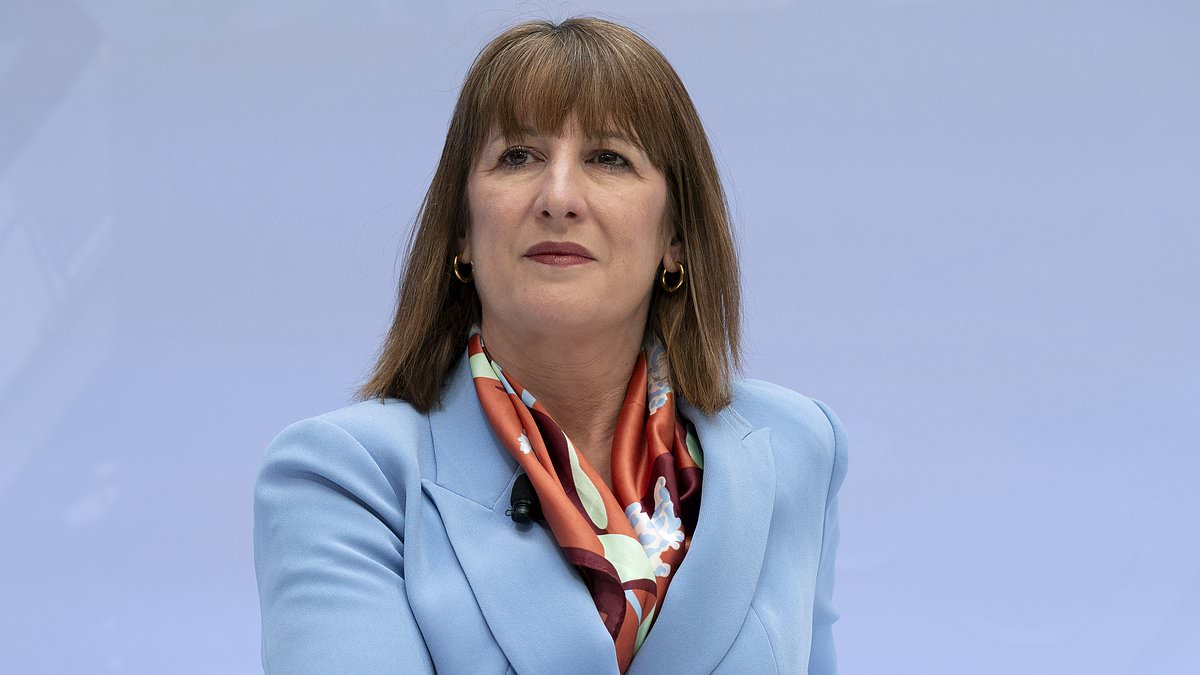Teachers, nurses and council workers issued strike warnings last night after Rachel Reeves ruled out extra cash for public sector pay rises.
The Chancellor put the Government on a collision course with unions by warning that any inflation-busting rises would have to be funded by cuts to services.
The clash could put Britain on track for a summer of discontent, despite Labour’s pledge to usher in a new era of industrial harmony.
As the Tories accused Labour of being ‘soft’ with its union paymasters, independent pay review bodies look set to blow a £3 billion hole in Ms Reeves’ spending plans by recommending above-inflation pay rises for millions of public sector workers.
Reviews are expected to recommend a 4 per cent pay rise for half a million teachers and a 3 per cent increase for 1.4 million NHS staff – above the 2.8 per cent affordability cap set by the Treasury.
Downing Street yesterday said there would ‘be no additional funding for pay if recommended awards exceed what departments can afford’.
Leading unions warned they were ready to consider strike action unless awards were set at a level that will tackle the rising cost of living – and were fully funded by the Government.
Daniel Kebede, general secretary of the National Education Union, said: ‘No one wants to take strike action, but of course as a trade union we do stand ready to act industrially if we need to.’
Jo Galbraith-Marten, of the Royal College of Nursing, said members were being balloted on ‘what action, including industrial action, they might be prepared to take’, if this year’s pay award is not good enough.
She said a 3 per cent rise would ‘do little to turn things around’ in a profession ‘in crisis’.
The Unite union urged members to reject a 3.2 per cent pay offer to local council workers, including bin men, cleaners and dinner ladies.
Despite the warnings, No 10 said the Government would press ahead with a controversial workers’ rights charter that will tear up Tory anti-strike laws designed to prevent irresponsible walkouts.
Shadow Chancellor Mel Stride said Labour had fuelled union militancy by caving in to their demands within weeks of taking office last summer.
He told the Mail: ‘Labour have already handed inflation-busting pay rises to public sector workers, without any productivity strings attached.
‘Instead of sorting the issue as they said it would, Labour’s soft approach has seen their union paymasters simply come back for more. The trade unions are calling the shots – all at a time when the Chancellor has no room to manoeuvre thanks to her reckless approach to the public finances.’
Sir Keir Starmer said no decisions had been made on the recommendations, saying ‘we are not at that stage of the process’. The Prime Minister indicated that ministers will work with public sector unions to try to avert another wave of action.
Health minister Stephen Kinnock urged unions not to resort to strikes, and to recognise that the Government had to work ‘within fiscal constraints’.
Downing Street declined to comment on the details of the independent pay reviews, but insisted that departments would not be given extra cash to fund them.
Last year, Ms Reeves scrapped the winter fuel allowance within weeks of coming to office to help fund a £10 billion pay settlement for public sector unions, including increases of up to 6 per cent.
Ministers said the funding was justified to settle debilitating strikes in both schools and hospitals. But critics warned they had failed to secure productivity agreements in return for the extra money and would only encourage more militancy.
The exact cost of the higher-than-expected pay awards is unknown, but Paul Johnson, director of the Institute for Fiscal Studies, said adding 1 per cent to public sector wage bills would cost between £2 billion and £3 billion. A 4 per cent rise could cost taxpayers £10 billion and leave departments around £3 billion short.
Mr Johnson said tight public finances meant the Chancellor would ‘want to be as ungenerous as she can get away with’. The cash squeeze is expected to hit schools hard. In evidence to the pay review body, the Department for Education warned that headteachers would have to make ‘efficiencies’, even if pay rises are capped at 2.8 per cent.
Education sources said a 4 per cent rise could require significant frontline cuts. One source predicted it would be ‘chaos if schools are expected to go so steep with no additional funding, on top of the rise in National Insurance and the huge funding shortfalls they’ve had’.
Schools minister Catherine McKinnell refused to rule out teacher redundancies after Tory education spokesman Laura Trott warned that the squeeze would put schools in an ‘impossible funding situation’.
Unite, which led the crippling Birmingham bin strike, urged members to reject a 3.2 per cent pay deal covering 1.4 million local government workers. Unison and the GMB, which also represent council workers, will discuss the offer next week. Mr Kebede said teachers would not accept a deal that was paid for by cuts in the schools budget.
He told the BBC: ‘We absolutely want to avoid strike action. This Government can avoid it by publishing the (pay review) promptly and ensuring that pay awards are funded properly.’
